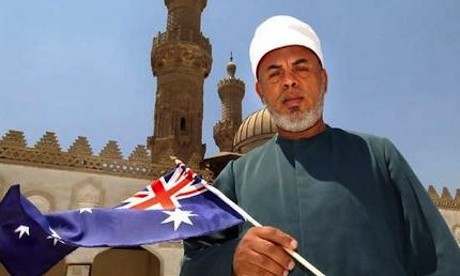This is the second article in a series of three instalments, comprising Aftab A. Malik’s reflections on his three month stay in Lakemba, Sydney.
Even before I began giving lectures, controversy had spread concerning my presence in Lakemba. Who was I? Why was I here? What was my agenda?
Needless to say, some emails that trickled into the Lebanese Muslim Association (LMA) weren’t very polite, while others were outright obnoxious. Later during my stay, rumours surfaced that I was an anti-terrorism agent, training young Muslims how to defuse bombs (well, that’s better than being accused of training young Muslims to make bombs, I suppose). I actually read a few of those emails just to prepare myself for the sort of attitudes that I would come across during my stay.
Even when I met the first wave of young Muslims, I was faced with a few “face-offs.” Perhaps I am being too harsh. I guess the scepticism was natural: we live in an age in which people clamour to have their “fifteen minutes of fame” and broadcast themselves on YouTube, as if everyone simply needs to hear what they have to say. We are inundated by self-made celebrities and their opinions. The sad thing is that there is always an audience.
In fact, I did not come to Sydney to carve out a niche for myself on the celebrity circuit, nor did I wish to inundate others with my opinions. If I articulated any opinions, they were only echoes of what the scholarly community has said. I wanted to convey, not necessarily teach. My hope was simply to get people thinking, allow them some insight into the richness and vastness of the Islamic scholarly tradition, and articulate that the Qur’an (the principal source for Islamic law) has a pluralistic worldview that recognises religious diversity.
Truth and beauty in Islam
In fact, the Qur’an addresses the whole of humanity, emphasising that those who are religiously oriented and those who are not are all “children of Adam” (Banu Adam). I emphasised that normative Islam is predicated on the Arabic word adab, which, in its original meaning, means “an invitation to a banquet.” This is a banquet of honourable, refined guests. It’s a gathering defined by etiquette. Today, the word is often and frequently translated as “manners.”
On one level, this is certainly true, but it has a more profound and deeper meaning. For instance, from this word, we obtain another, adib, which relates to a person of letters, or of grammar more specifically. The idea follows that the person of adab, through discipline, acquires knowledge (‘ilm), from which they are able to determine and place things in their proper context and place, giving that thing its true and proper meaning.
We could all do with a good dose of adab, but this requires seeking out those living authorities who can impart such knowledge and wisdom. Normative Islamic scholarship is and has always been established by transmission – a handing down from one generation to another of sound religious knowledge by individuals who carry a formal license to teach (‘ijaza) that confirms their mastery over a particular discipline or text, which they are then authorised to teach to others. It carries with it authority, since it is only given by masters who themselves received it from their teachers and so on until this chain (isnad) is traced back to the first generation of Muslims (al-Salaf) and to the Prophet Muhammad himself. Continue reading
Sources
